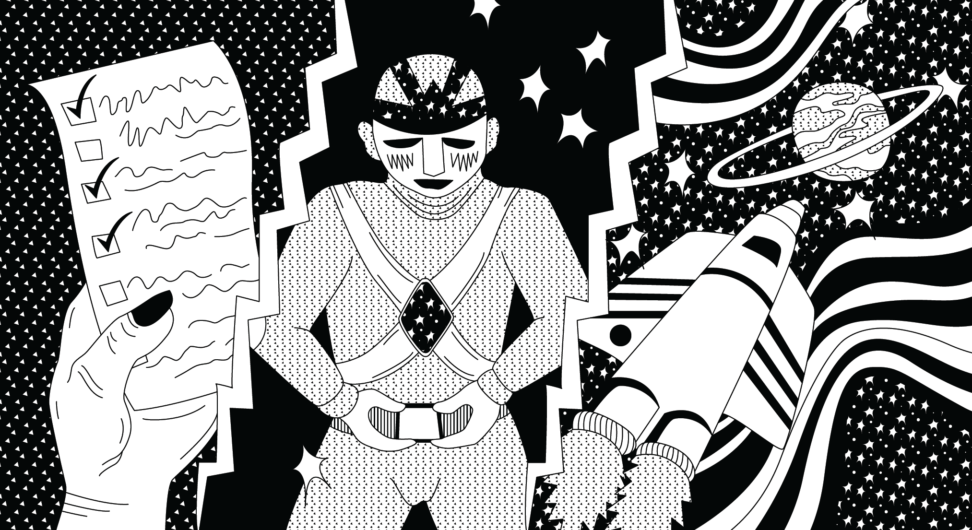When To Say Yes
A couple weeks ago the insightful and talented Janessa Knodt wrote about the power of saying no (as opposed to yes to everything). As with any power, you have to know when to wield it.
Cash-strapped times aside, I have found it helpful to have a rubric to go by so I can be taking on work that not only feeds my wallet in the short term but my professional goals and well-being in the long term. In haste, we’ve all taken on projects that we regretted because they sucked up ungodly amounts of time, energy and resources—what this blog post presupposes is perhaps a tailored pre-yes checklist could keep that from happening.
My checklist, which used to be on a sticky note above my desk (note to self: re-place sticky note) is a mix of conceptual and practical considerations. It is designed to slow down my excitable “yes” reflex so I can make better and more baller decisions. It’s not one-size-fits-all but take a read through and then create your own:
VALBRAINS PRE-YES CHECKLIST
1. Does this work create beauty & meaning?
I stole this from my time at JMMDS—I just can’t think of a better way to say it. Another consideration: Am I solving real and pressing problems, or just moving pixels around? Highly subjective but that’s the point.
2. Does it get me closer to self-sufficiency/financial stability?
Is the cash commensurate with the effort required to complete the project? Consider the time and mental energy it will take away from other things you also do for money.
3. Am I meeting smart, interesting, good people?
Pretty self-explanatory: are the folks I’m working with blowing my mind into a zillion dope pieces, making me want to poke my eyes out, or somewhere in between. What is my threshold for acceptable engagement?
4. Does this project allow me to present myself in a way I want to be seen?
Is the work I will be creating and the way I’ll have to act/interact in order to create it aligned with who I am as person, or at least who I can stand to be while still sleeping at night?
5. Does it help to build my larger presence/brand or detract/distract from it?
Is this project something I will (proudly) include in my portfolio? Will I want to share this work with others? Is it a stepping stone to more ambitious projects in a similar vein?
6. Does it allow me to indulge my curiosity?
I suppose this only applies if you’re highly curious. If you don’t care either way, you can skip this one!
7. Does it sound fun?
This should be an easy one: listen to your gut feeling. If the description makes you dread the project and you’re not on your last nickel, take a hard pass.
8. Do I trust this client?
Basically, how much faith do I have in getting paid, and on time? Does this client respect my expertise and what I bring to the table or are they just looking for someone with a pulse to do the work? Chasing money and respect is no fun—trust your gut on this one too.
…And that’s it. The ValBrains Pre-Yes Checklist is of course designed to steer you towards a best-case scenario (it’s no crime to aim high), but we all know freelance is more complicated than that. If you need the dollars, take ‘em, but don’t go into it blind: be aware of the substantial price of saying “yes” to work you know you shouldn’t be doing. The lost time, sanity, and energy taken away from projects and opportunities that are a better fit is a cost to stay aware of.
Further Reading:
- One freelancer’s trash is another freelancer’s treasure: If you can’t say yes, refer someone else (although if it’s truly a shit project, don’t just throw someone else under the bus. I can’t believe I have to disclaimer that, but 2017 has been a weird one). Productive referrals help maintain relationships, show that you provide value, and put work in front of someone who might need it.
- Don’t sacrifice recharge time for a project: “If a project deadline coincides with a planned trip, vacation or other time off, you should decline the work. Personal time is important too.”
- Practice saying no. Sounds simple enough, but have you ever really done it? Check out these tips from HBR.
Got any tried and true advice for deciding when a project is a bad fit? Leave it in the comments so that we may all make fewer bad decisions!
This work is licensed under a Creative Commons Attribution-ShareAlike 4.0 International License.


